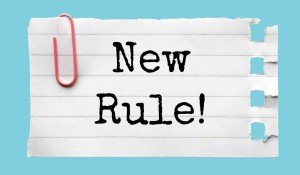 In the past, on this blog, I have defended the right of the public to weigh in on topics related to the history of early Christianity. It’s a topic with wide interest, and it would be a shame to limit input to those who have pursued a credential in history or in theology. Besides the fact that people with different academic specialties have real value to bring to the table, there is something unbalancing about allowing only the voices of those who have gone through a long and expensive credentialing process, usually with the hope of gaining employment either as faculty or in ministry.
In the past, on this blog, I have defended the right of the public to weigh in on topics related to the history of early Christianity. It’s a topic with wide interest, and it would be a shame to limit input to those who have pursued a credential in history or in theology. Besides the fact that people with different academic specialties have real value to bring to the table, there is something unbalancing about allowing only the voices of those who have gone through a long and expensive credentialing process, usually with the hope of gaining employment either as faculty or in ministry.
That being said, I am proposing a new rule: If you haven’t got a degree in history or religion, make everything that you want other people to respond to you about available for free online. Otherwise, don’t expect anything but obscurity. You have only yourself to blame for the level of interaction with your published work.
It’s easy to understand why those who have a degree in the subject want to publish books. Nowadays, even if you aren’t on a tenure track yet, the “publish or perish” maxim begins from the moment you start grad school. Your publishing record is a big part of your ability to get any kind of teaching position whatsoever. That’s why you look to find an academic press for your book, and that’s why your books are expensive. It’s not because you don’t want them to be read. It’s because you hold out hope of finding (or keeping) a job in this field.
What if you are self-publishing or publishing with an obscure, non-academic press? What if you have no degree in the subject, not even a Bachelor’s degree in history? What if both are true?
Then you really have to wonder why you (1) haven’t gotten a degree and (2) have chosen to self-publish a book (which can make scholars envious with the 70% royalties possible – money that they will never see from their books) instead of publishing the same material online. The education is expensive, and the self-publishing process is potentially profitable. It’s also a deterrent to being read, so it makes people tend to assume that you value the potential for profit more highly than your ability to make a contribution on the topic.
Even if that isn’t true at all – especially if that isn’t true at all – it’s time to reconsider publishing a book as an amateur in the 21st century. If you want to make it available for free online and also available as an e-book or paperback, that’s great. If you want to pursue a degree and build a CV, that’s fine too. Otherwise, please don’t make us pay for the privilege of reviewing your arguments. It’s a fairly deplorable business model.
This rule seems meritocratic, but I’ll assume you have well-intended reasons for prescribing it.
As a Ph.D. myself, I can’t help but disagree with your proposal. An idea should be judged on its own merit – not the mouth from which it emanates. There are great ideas which do not come from academia, and there are academic theses with no great ideas at all.
“An idea should be judged on its own merit – not the mouth from which it emanates. There are great ideas which do not come from academia, and there are academic theses with no great ideas at all.” – None of which actually disagrees with the proposal.
BTW Dig your sites!
Great idea! Let’s clog the Internet pipe with free ebooks and put those pesky credentialed writers out of business. Who needs educated authority anyway? To the Bastille!
I read much. I respect the work of Robert Eisenman for its accessibility to the lay reader. I wish this were true of other scholarly types. In connection with reading and study, I give weight to personal experience if one has such. I’ve read papers online that are void of content but filled with big words. At this point in history, academic freedom really exists only online. I applaud your actions here.